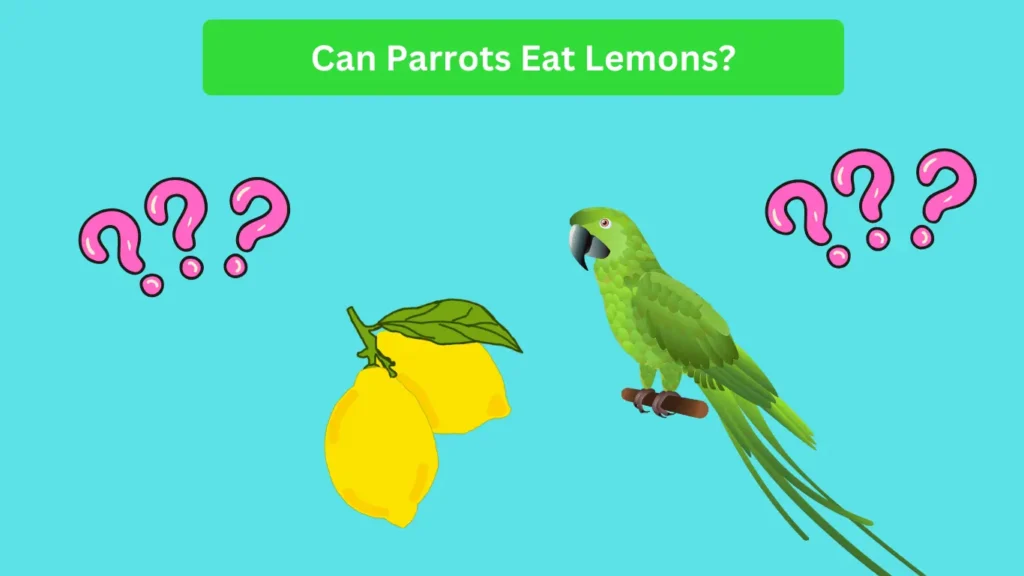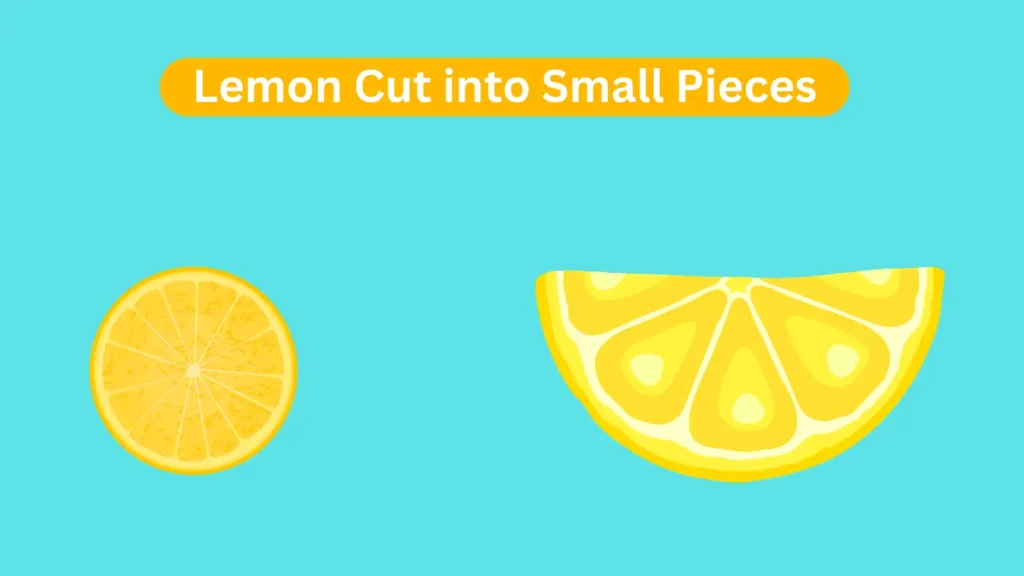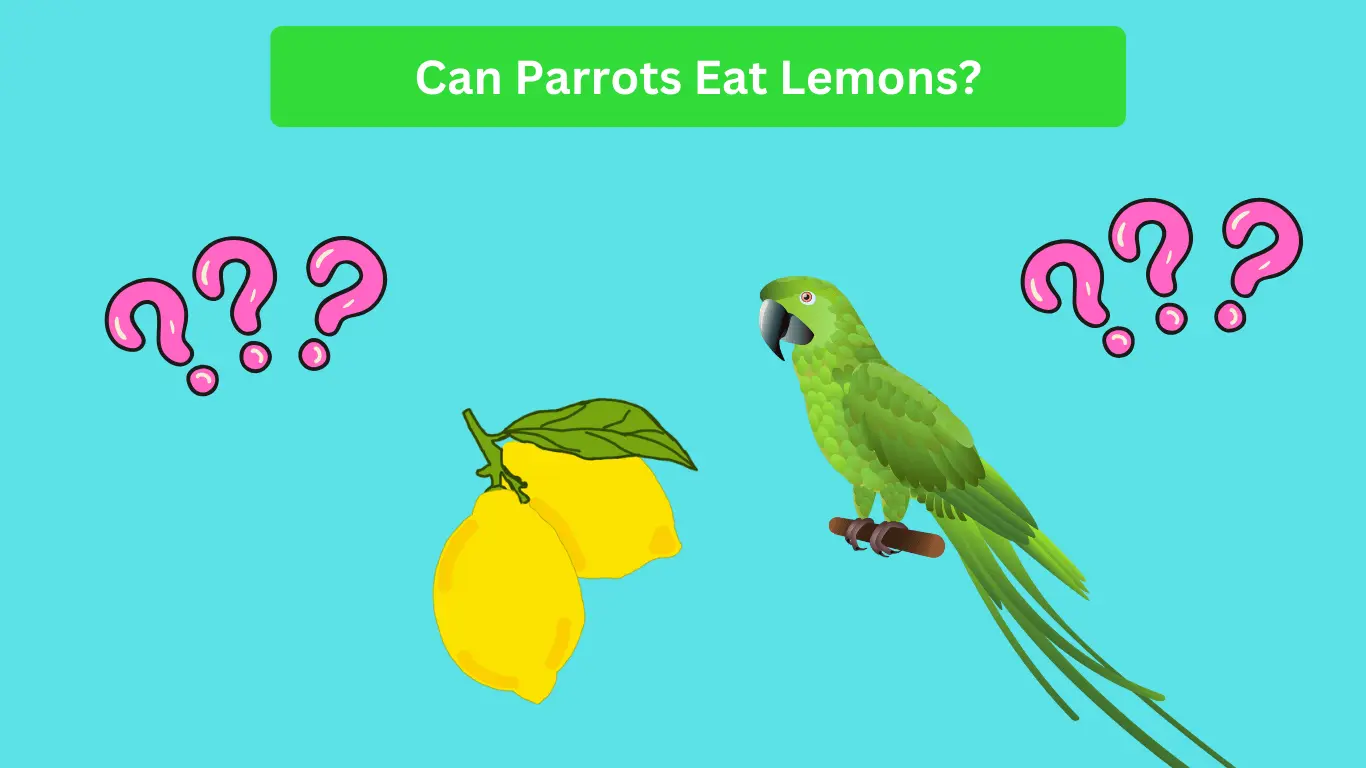Learn Can Parrots Eat Lemons Safely? Find out everything about the nutritional benefits, possible risks, and how much lemon is safe for your parrot to eat. Lemon is safe for parrots but should be fed in moderation. Lemons are acidic and although they have been known to have nutrients that provide the bird with essential nutrients it is important not to give the bird too many acidic foods as this can cause irritations to its stomach and or intestines. A little now and then is normally acceptable and the dosage makes it easier to get the benefits rather than getting harm from it.

Table of Contents
Nutritional Value of Lemons for Conures
Vitamin C: The vitamin that is found in lemons is vitamin C, and this is one of the most essential vitamins in the whole body.
Fiber: They possess dietary fiber that is useful in digestion.
Low in Calories: They are virtually free from fat and cholesterol and are classified as a low calorie snack that can be consumed between meals.
Acidity: It is perfectly safe for most birds but bad for some and should be watched with a parrot in particular.
How to Safely Introduce Lemons to Your Parrot
Giving lemons to your parrot may sound like a great idea, especially as they contain Vitamin C, but you need to do it the right way. Here’s how to introduce lemons step by step:
- Start Slowly: Start with approximately a slice of lemon, and a teaspoon of lemon juice blended with safe fruits. This helps your parrot get a taste of it since it has now changed flavor.
- Observe Reactions: The appearance of lemon may upset the tummy in the process or change its behavior, so stop bringing lemons. If your parrot seems to have an adverse reaction of any sort to the lemons, stop feeding it completely.
- Offer Fresh Options: This should be replaced with fresh lemon instead of preserved lemon products such as lemon concentrate. Fresh fruit contains more vitamins and has no preservatives or any other unwanted substance.
- Prepare Properly: Cut the lemon into small pieces If you prefer wedges, that will also be acceptable. You could also spare a little amount of juice to be spread on their normal food just to give them an extra kick that wouldn’t make their palate go on overload.
- Mix with Other Fruits: It should therefore be accompanied by other harmless fruits that your parrot loves such as lemons. This can assist in concealing the sour and at the same time give a nice punch of a dessert.
- Monitor Portion Sizes: Take servings in moderation since an excessive use of lemon causes discomfort in the stomach. Once or twice a week will do.
Some Risks of Feeding Lemons to Your Parrots

- Digestive Upset: In some parrots, lemons are toxic because of their high acidic content which causes digestive upsets such as stomach upsets, and diarrhea among others.
- Oral Irritation: Large portions of lemons may cause either inflammation of the mouth or throat and they contain citric acid, which is inedible to the parrot.
- Imbalance in Diet: Parrots need to be fed on balanced diets and over-emphasizing lemons may deny a parrot other natural sources of food that it also needs.
- Potential for Allergic Reactions: Parrots, although not very common, can develop reactions to specific foods or certain elements such as citrus fruit – lemons, for example.
- Dental Issues: Acidic products should be taken in moderation to avoid dental problems after some time, although this is a problem that may affect some animal species more than others.
Alternative Citrus Fruits for Parrots
If you’re seeking to substitute citrus fruits for your parrot there are some fruits that are as good and less acidic as citrus fruits. Here are some safe choices:
Oranges: Oranges are normally good for parrots and are as sweet as well as juicy. They contain vitamin C and can be served fresh in slices or their natural juice but no added sugar.
Mandarins: These fruits are smaller and sweeter in comparison with other citrus fruits; they can be peeled and segmented easily which is why is convenient for parrots.
Tangerines: Like mandarins, tangerines are sweet and convenient to manage as it is not an overbearing fruit. In combination with other food products can be useful in feeding your parrot.
Grapefruits: Even though parrots are capable of being sour, some prefer eating grapefruit. Give small portions of it to know if your bird cares about the taste of the product.
Limes: Although lime is very acidic, some parrot kinds can be fed this fruit occasionally. And you should use not very large amounts to prevent overloading their capacity.
Conclusion About Can Parrots Eat Lemons
Lemons are not toxic for parrots but should only be given sparingly and only when no signs of GI upset are observed. It is advisable to always peel seeds and not offer your parrot excess quantity to eat since it has various benefits to offer without having to cause harm. Despite this, there are so many other fruits safe to give parrots which would help to maintain their diets interesting and healthy.
FAQs About
Is citric acid safe for parrots?
Small portions of citrus to parrots can be healthy but use natural sources such as the outer peel of oranges, lemons, and pure citrus in very little quantity.
Can parrots eat lemon seeds?
Yes, they should avoid taking lemon seeds. Lemon seeds like other citrus seeds contain minute quantities of cyanogenic compounds which liberate cyanide on consumption.
Can parrots eat lemon Peel?
The lemon peel should generally not be given to parrots. Lemon peel is not toxic but poses a certain hazard for parrots because of its including factors such as oils, bitterness, and pesticide residues.
Can parrots eat lemon juice?
It is alright to feed your parrot a little lemon juice occasionally but should not be made a regular practice. Lemon juice is a good source of Vitamin C and antioxidants that are good for parrots.
Related Posts

Abubakr is a passionate parrot enthusiast based in Pakistan. He shares his life with his vibrant parrot, Peto, and is dedicated to understanding parrot nutrition, behavior, and training. Through his experiences with Peto, Abubakr aims to gain a deeper insight into the needs and personalities of parrots and to share his knowledge with fellow parrot lovers. With a focus on the nutrition of conures, Abubakr is excited to connect with like-minded individuals and learn from their experiences.
